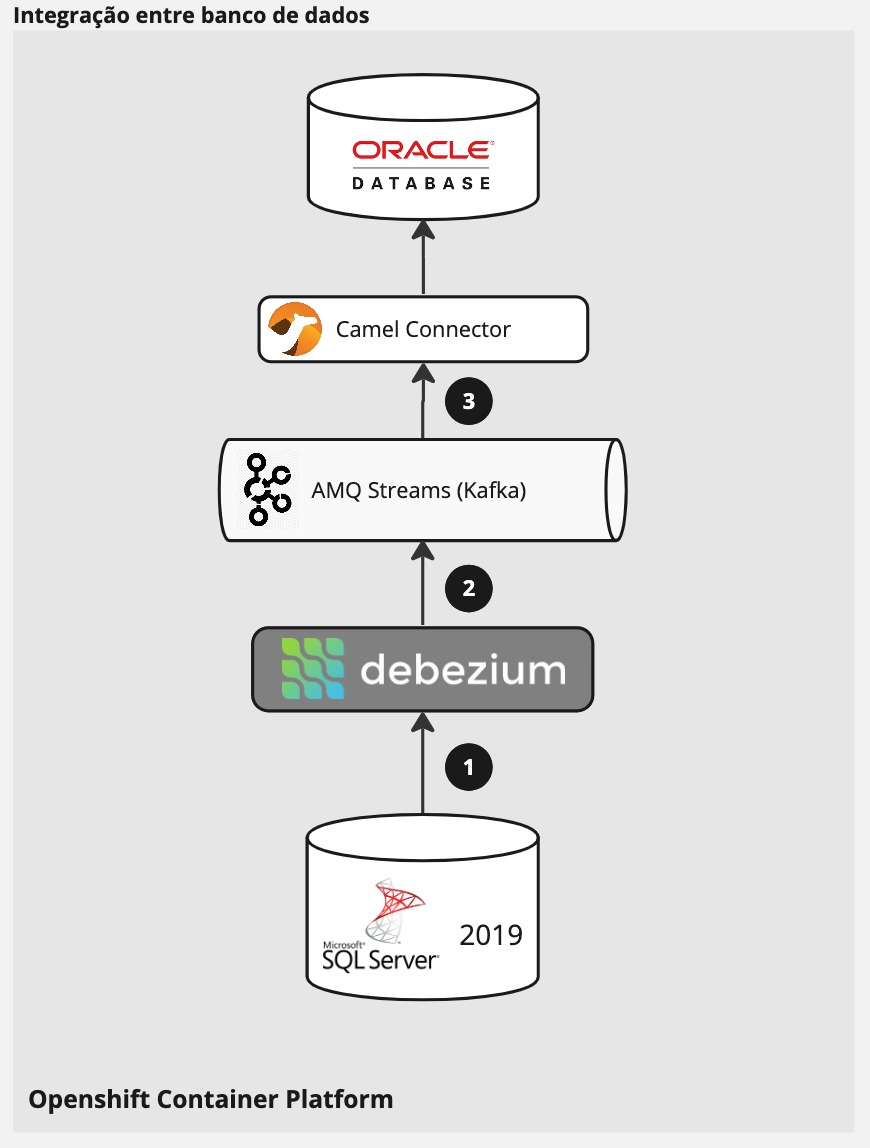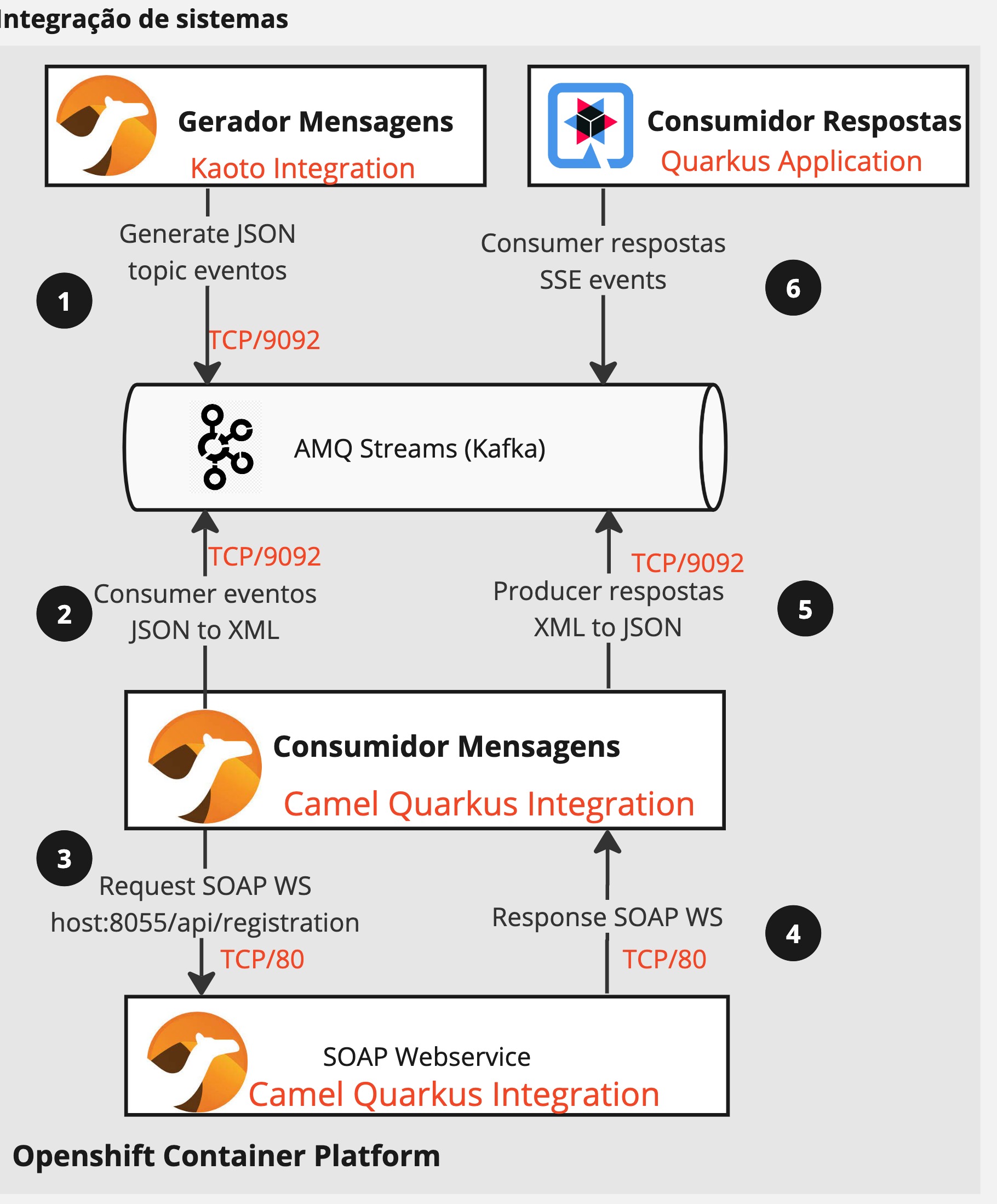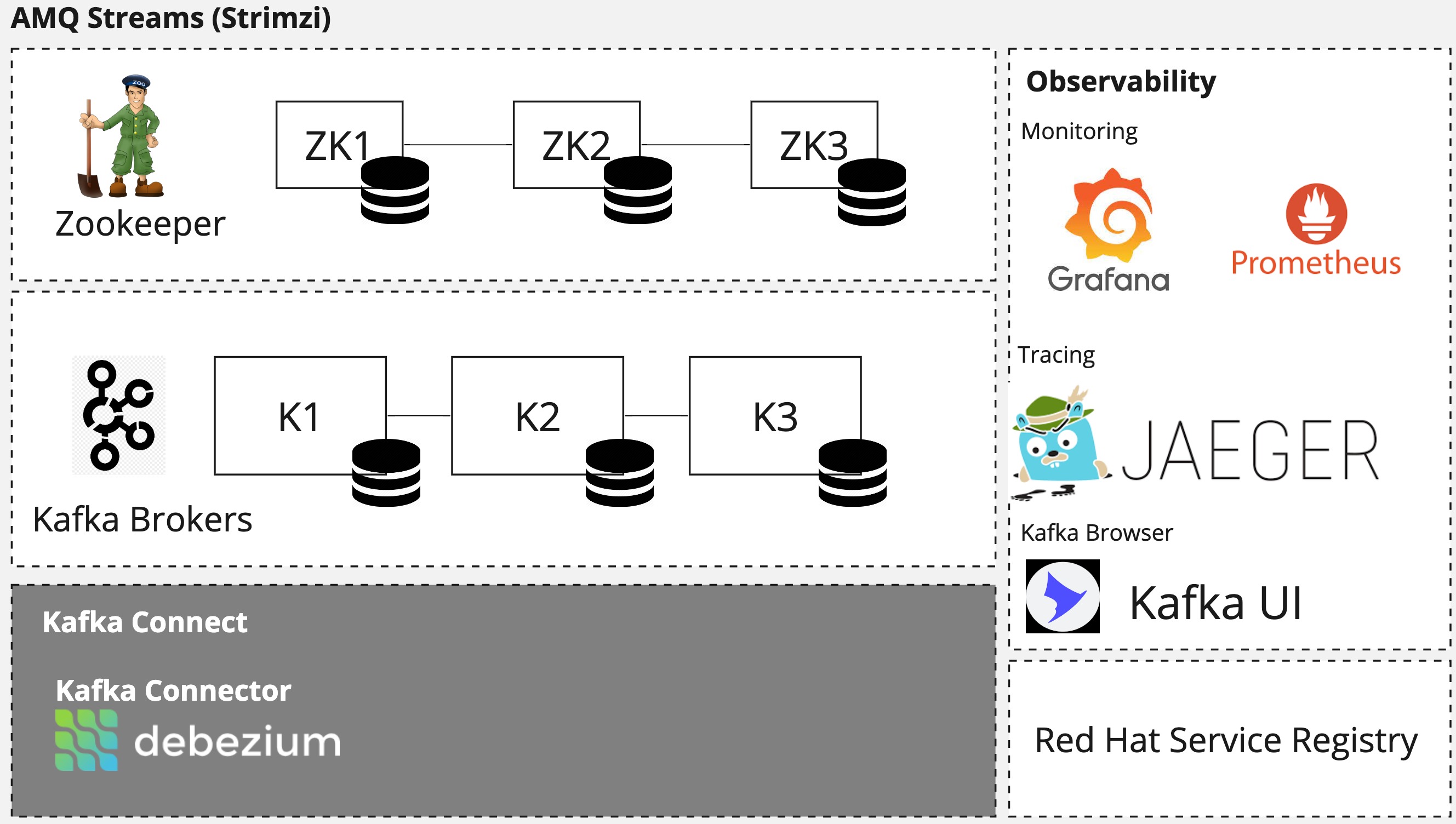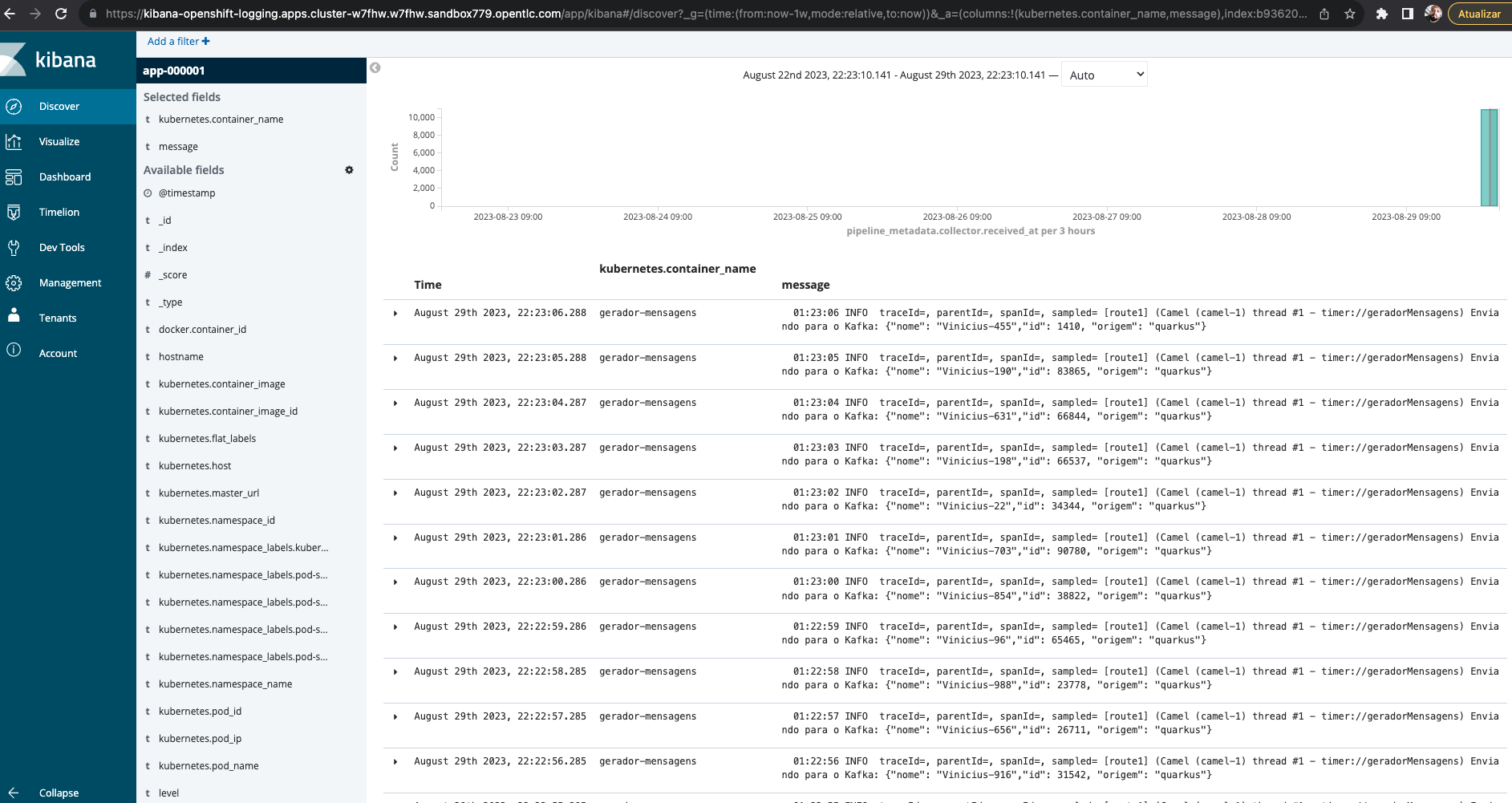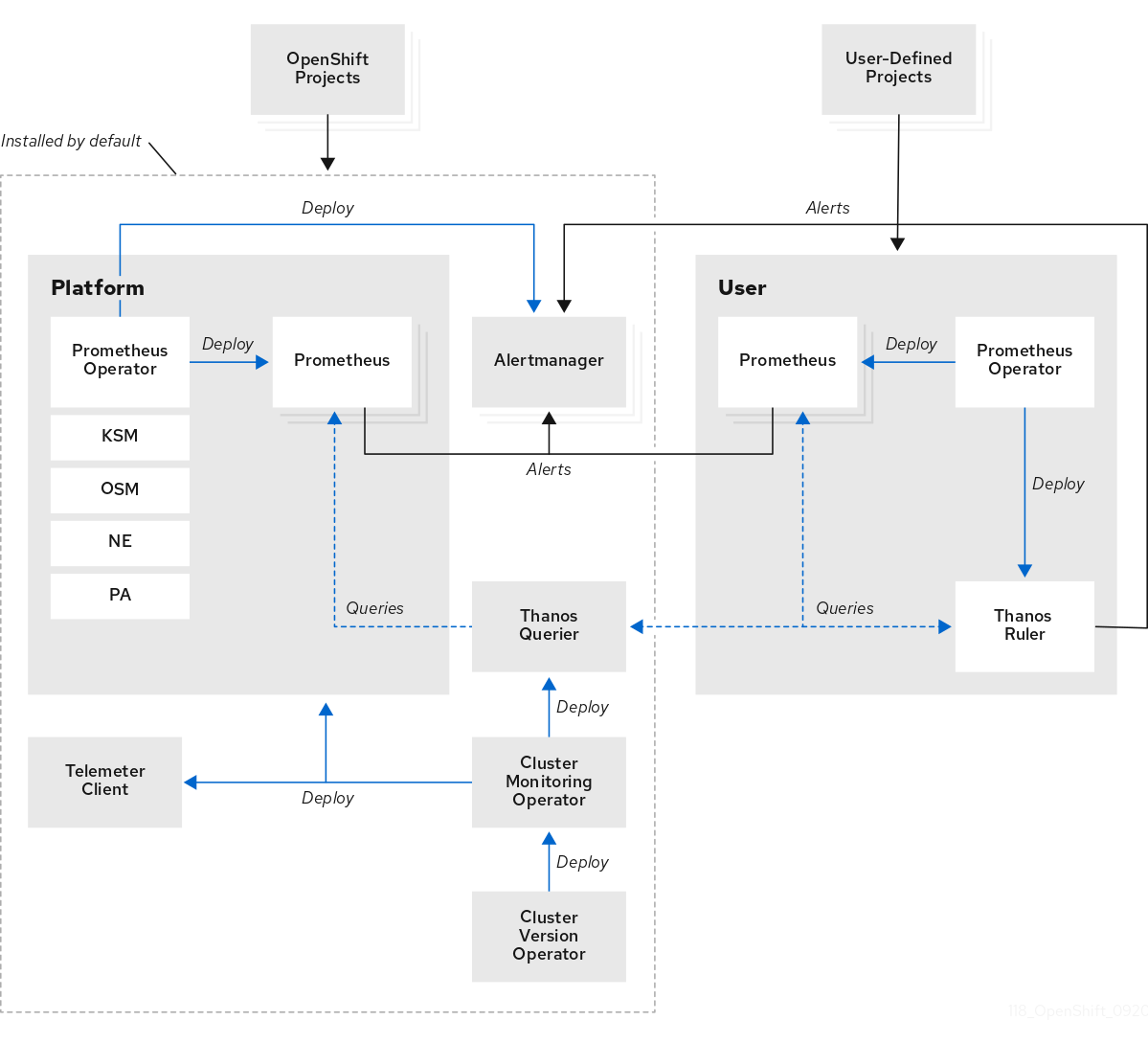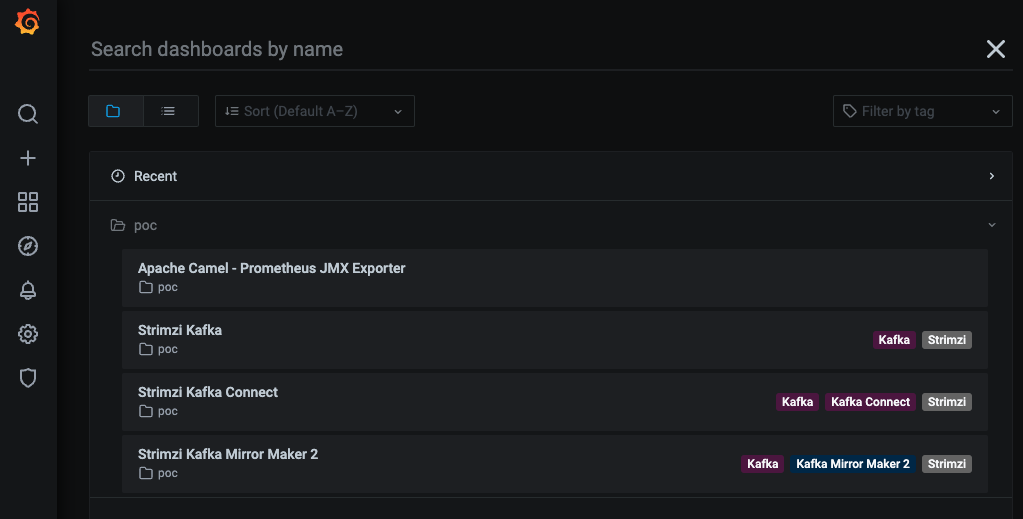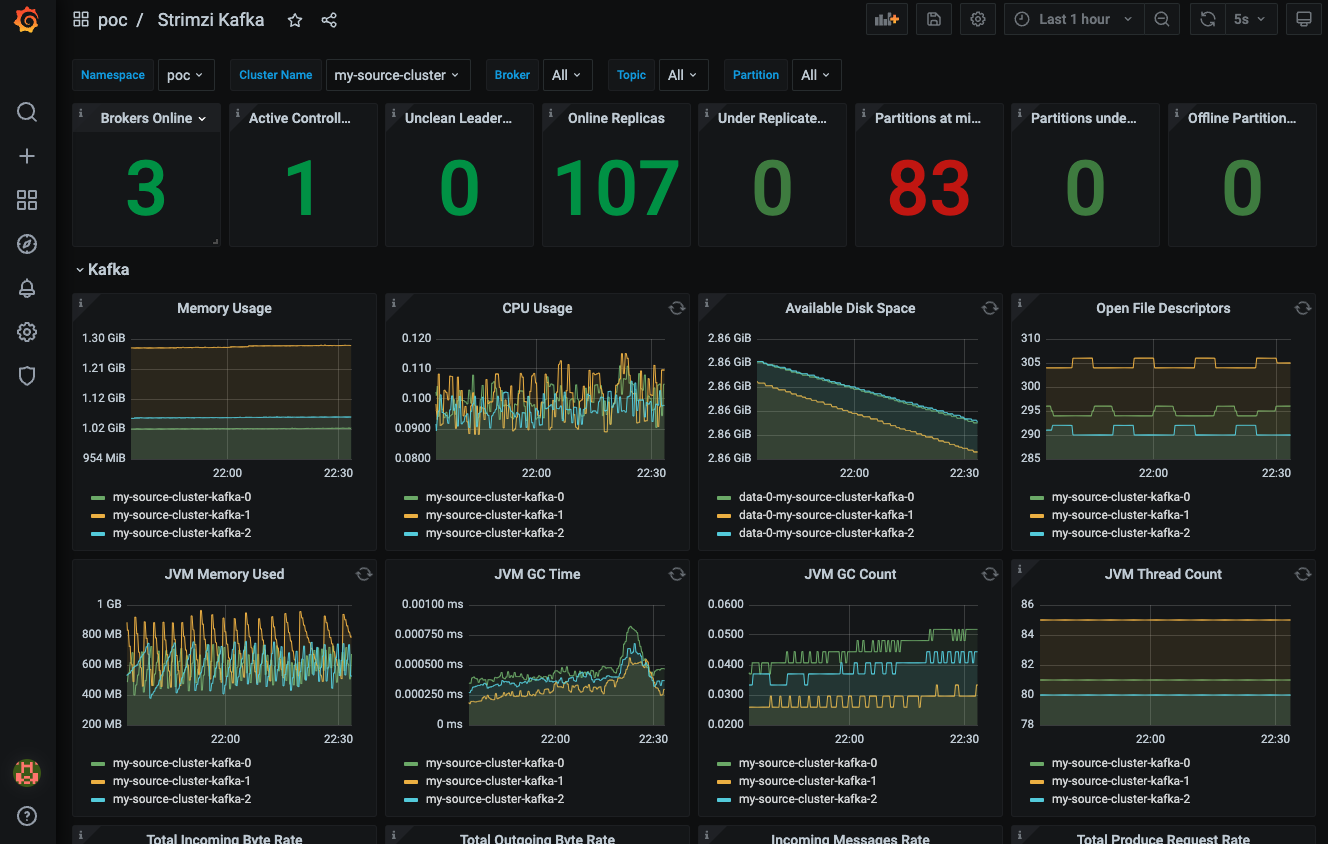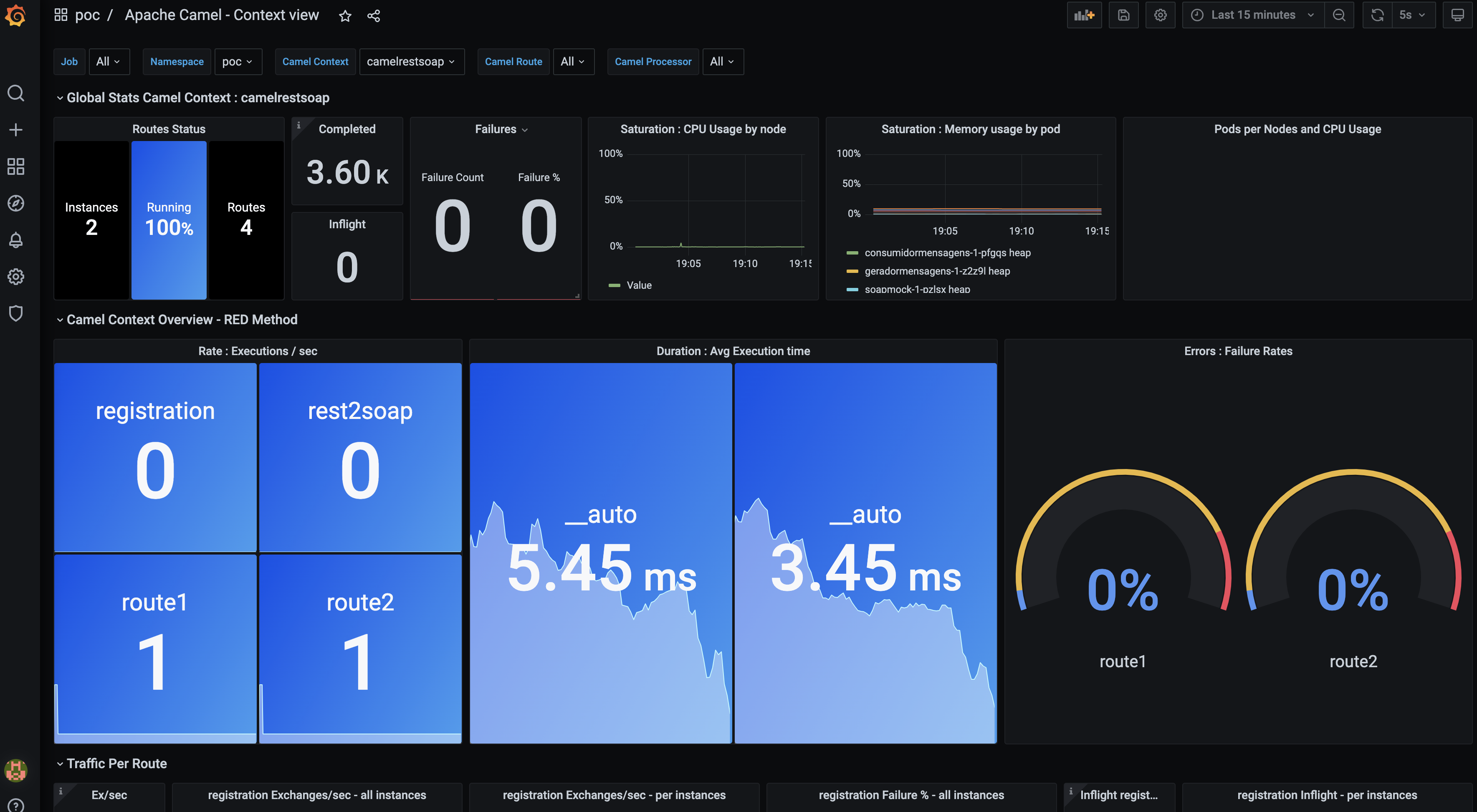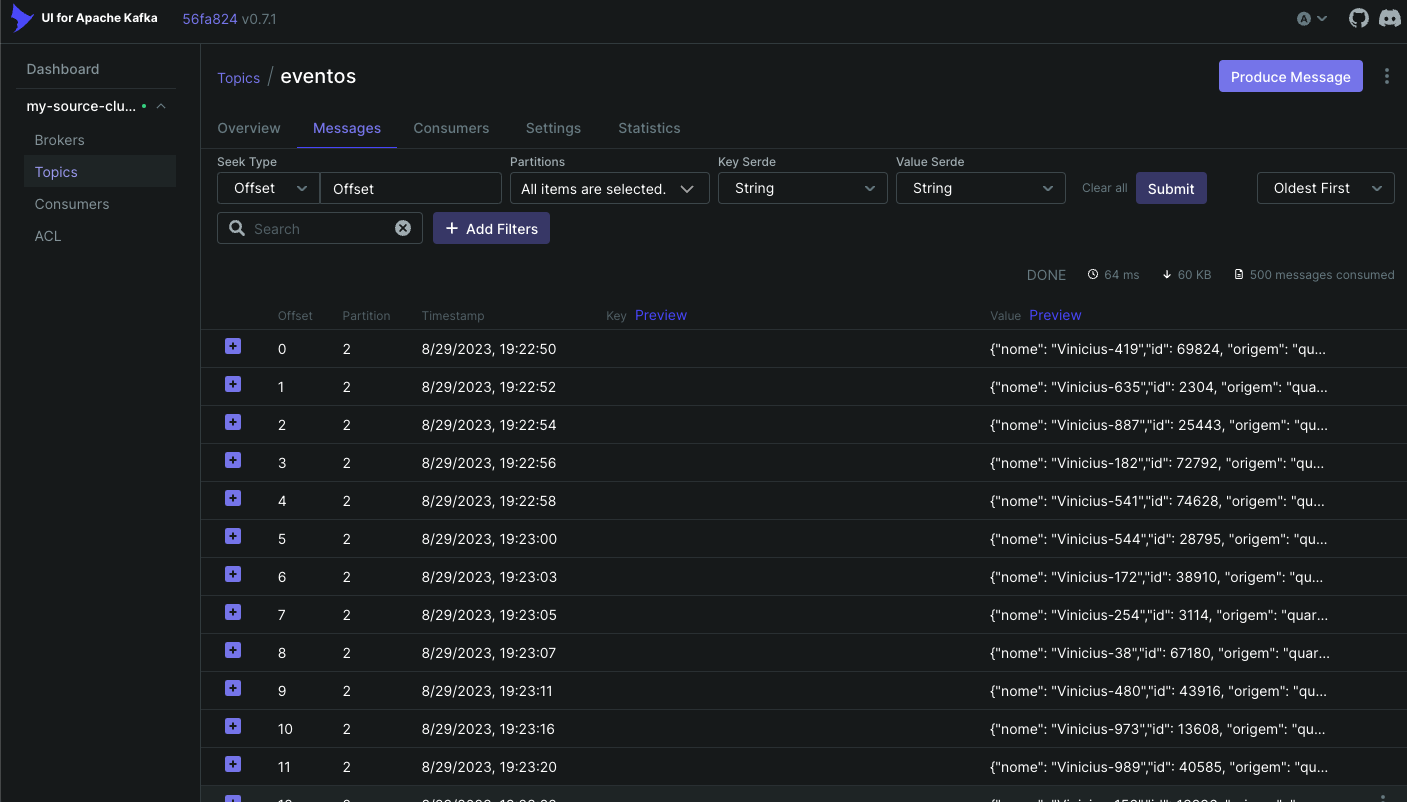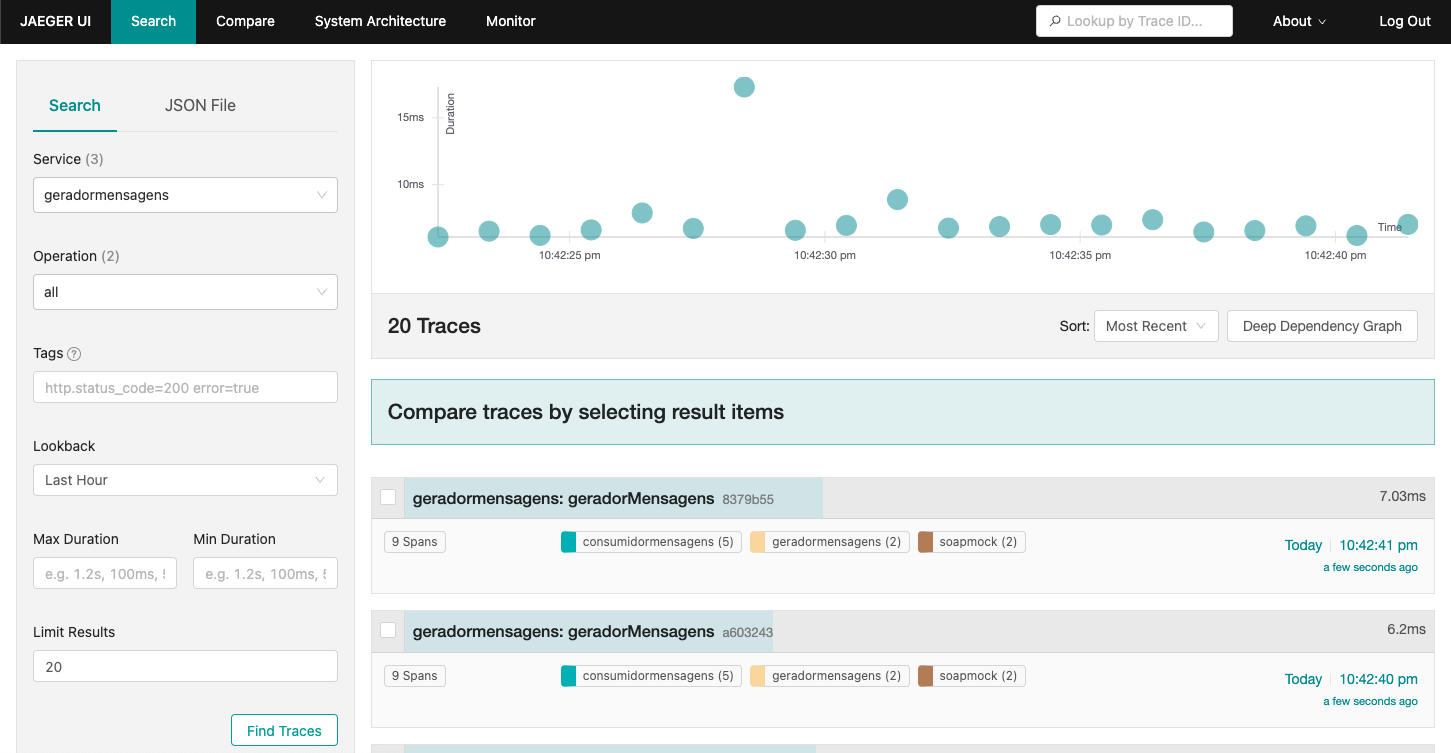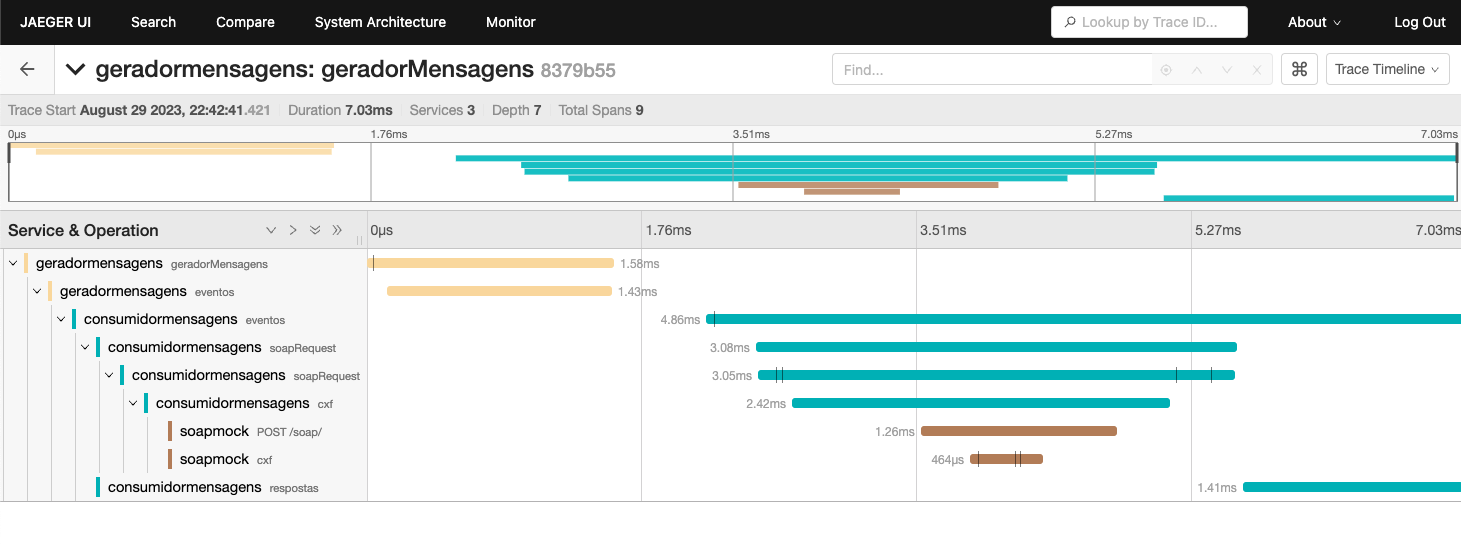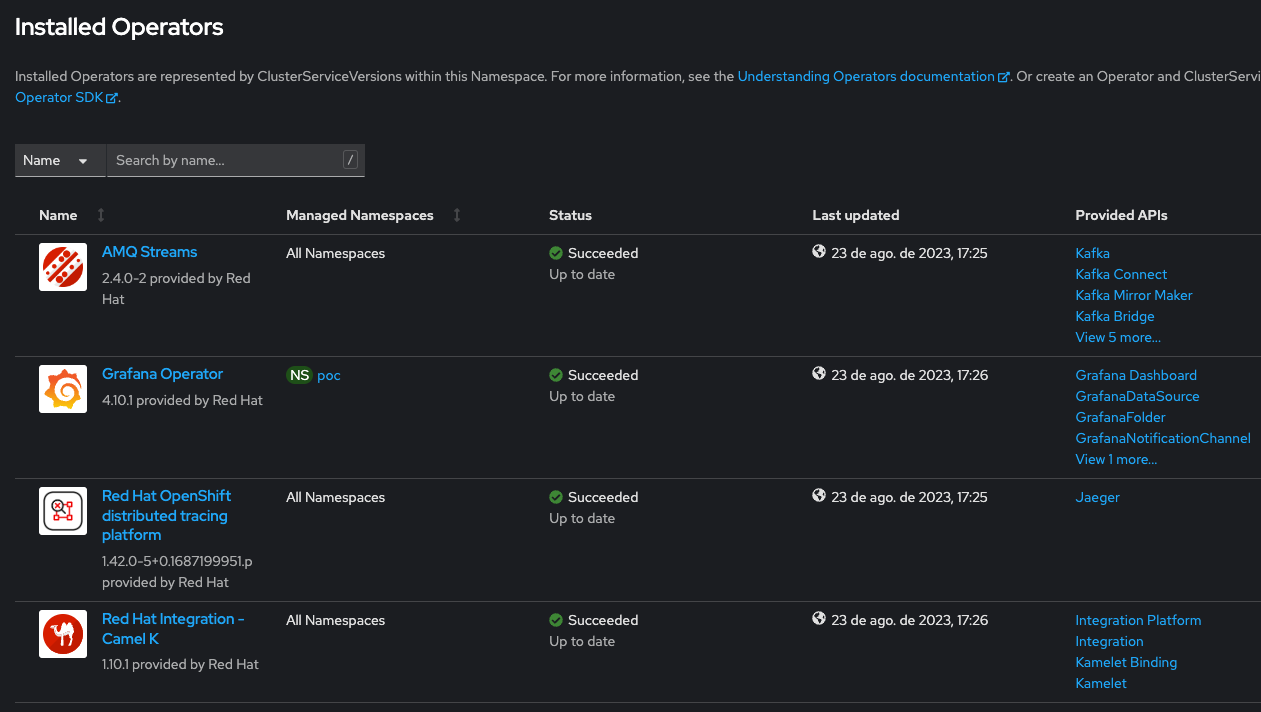This repository covers two use cases.
-
Data migration between SQL Server 2019 and Oracle Database using Chanage Data Capture with Debezium and Strimzi
-
Data transformation XML/JSON with Camel and the ability to communicate with REST and SOAP webservices.
-
SQL Server is running with
AGENT ENABLED. Debezium is running as a connector inKafka Connect, connected to theSQL Serverlisten to all events in theOrderstable. -
Capture all events from
SQL Serverand send it toKafkainJSONformat, storing in themssql-server-linux.dbo.Orderstopic. -
Camel application that consume events from the
mssql-server-linux.dbo.Orderstopic, and insert intoOracle database.
-
Generate JSON messages in each 1 seg and send through the
eventostopic inKafka. -
2 e 5. Consume
JSONmessages from the topiceventos, transform it toXMLand do a SOAP request. Receive a response from the SOAP service, transfor it back toJSONand send to the topicrespostasinKafka. -
3 e 4. SOAP Web service built using Camel Quarkus.
-
6.
Quarkusapplication that consume messages from the topicrespostasand show it in a webpage that is receiving live events usingSSE(server-sent events).
If you want to see log aggregation Openshift feature, install this following the documentation.
On this poc we use the Openshift Monitoring Stack and a custom Grafana to use our own dashboards.
Custom dashboards deployed
-
Apache Camel
-
Strimzi Kafka
-
Strimzi Kafka Connect
-
Strimgi Kafka Mirror Maker 2
Sample dashboard of Kafka
Sample dashboard of Camel
Also for browsing Kafka specific components we are using Kafka UI.
All the proof of concept it’s inside Openshift.
|
Note
|
I decided to remove Operators logic from the playbooks because it looks to broke whenever there is a new version of a Operator the playbooks starts to fail (It’s annoying). |
-
Red Hat Openshift Platform
-
AMQ Streams Operator
-
AMQ Grafana Operator
-
Red Hat Camel K Operator
-
Red Hat OpenShift distributed tracing platform
consumidor-respostas |
8080/TCP |
debezium-connect-cluster-connect-api |
8083/TCP |
grafana-alert |
9094/TCP |
grafana-operator-controller-manager-metrics-service |
8443/TCP |
grafana-service |
3000/TCP |
jaeger-agent |
5775/UDP,5778/TCP,6831/UDP,6832/UDP |
jaeger-collector |
9411/TCP,14250/TCP,14267/TCP,14268/TCP,4317/TCP,4318/TCP |
jaeger-collector-headless |
9411/TCP,14250/TCP,14267/TCP,14268/TCP,4317/TCP,4318/TCP |
jaeger-query |
443/TCP,16685/TCP |
kafka-ui |
8080/TCP |
mssql-server-linux |
1433/TCP |
my-apache-php-app |
80/TCP |
my-source-cluster-kafka-0 |
9094/TCP |
my-source-cluster-kafka-1 |
9094/TCP |
my-source-cluster-kafka-2 |
9094/TCP |
my-source-cluster-kafka-bootstrap |
9091/TCP,9092/TCP,9093/TCP |
my-source-cluster-kafka-brokers |
9090/TCP,9091/TCP,9092/TCP,9093/TCP |
my-source-cluster-kafka-external-bootstrap |
9094/TCP |
my-source-cluster-zookeeper-client |
2181/TCP |
my-source-cluster-zookeeper-nodes |
2181/TCP,2888/TCP,3888/TCP |
oracle-19c-orapoc |
1521/TCP,5500/TCP |
soapmock |
80/TCP |
| Parameter | Example Value | Definition |
|---|---|---|
tkn |
sha256~vFanQbthlPKfsaldJT3bdLXIyEkd7ypO_XPygY1DNtQ |
access token for a user with cluster-admin privileges |
server |
OpenShift Cluster API URL |
